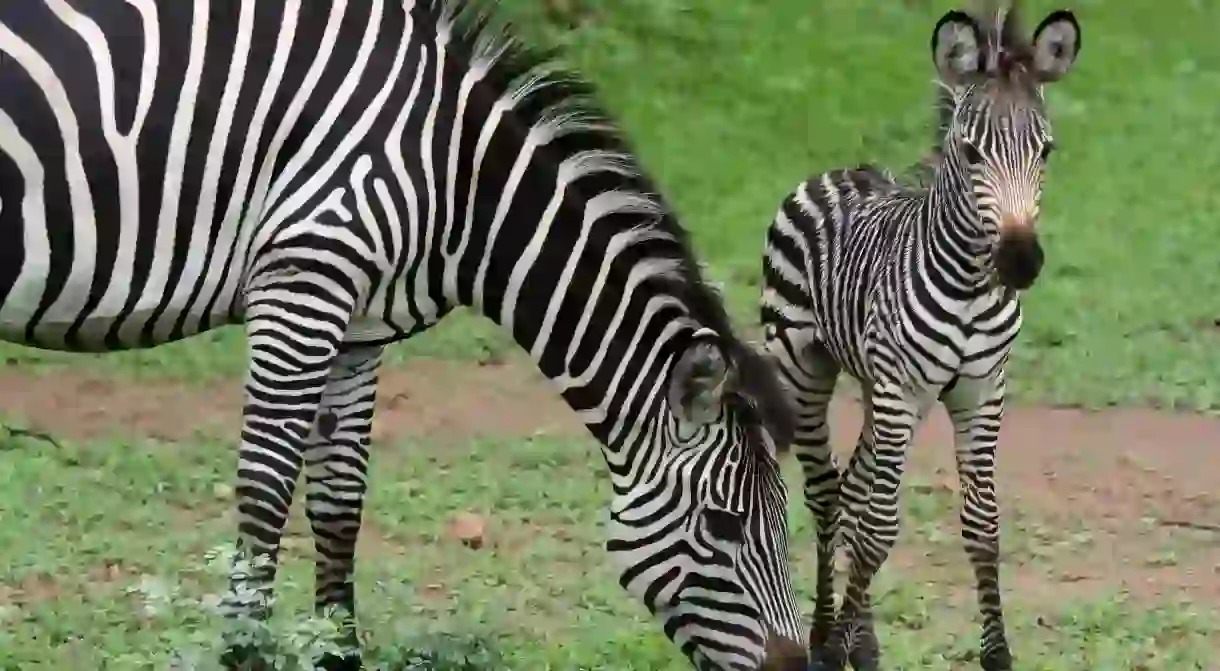What Women are Doing to Help Conservation Efforts in Zambia

Zambia has 20 national parks and 34 game management areas that feature many endemic species, as well as mammal migrations, such as that of bats and wildebeests. However, the country has had a decrease in wildlife due to elephant and rhino poaching, residents who hunt antelope to sustain their livelihoods, and the animal versus human conflict that occurs when citizens live in or near national parks. Women in Zambia have taken the lead in wildlife conservation efforts. In honor of Women’s Month, here are some of the ways women in Zambia contribute to the cause.
Saving species
Thandiwe Mweetwa is a senior ecologist and community educator for the Zambia Carnivore Program Luangwa Valley team, which is dedicated to saving big cats in the area. She looks at the effect human interaction has on lion and leopard populations, and her on-the-ground work involves monitoring prides of lions, which is notoriously hard to do. In her research, Mweetwa discovered that the fertility cycles of lionesses sync, and they reproduce around the same time. This allows them support to each other while raising cubs. Mweetwa also leads community outreach and training programs to inspire girls interested in careers in wildlife conservation.
https://www.instagram.com/p/BgEaXbOHPBk/?taken-by=wwfzambia
Intelligence and surveillance
In the Netflix documentary The Ivory Game [2016], filmmakers go undercover to explore the complex world of the illegal ivory trade. It takes a look at everything from the poachers in Zambia, Tanzania, and Kenya, to the sellers in Hong Kong, Vietnam, and London. The portion of the film in Zambia follows Georgina Kamanga, head of the Investigations and Intelligence unit at the Department of National Parks & Wildlife, as she leads undercover efforts to track down syndicates of an international poacher who was eventually sentenced to 12 years in prison.
https://www.instagram.com/p/BMlnCaCB13F/?hl=en&taken-by=kuatengamedia
New technology
Newly appointed country director for The World Wildlife Fund, Nachilala Nkombo, has continued the Drones for Conservation project, which recently launched and uses unmanned aerial vehicles, also called drones, to track wildlife in hard-to-reach areas. Using drones in five national parks will increase surveillance and will hopefully help curb poaching.
https://www.instagram.com/p/BgGTzxYHkkM/?taken-by=wwfzambia
Sharing information
The Women for Conservation initiative was created by women with careers in wildlife conservation in Zambia as a way to network, create mentorships, share ideas, and otherwise support each other. This is done through informal quarterly meetings, such as the recent meeting, which featured Dr. Patricia Mupeta-Muyamwa, indigenous peoples and local community strategy lead for Africa at The Nature Conservancy; Rhoda Kachali, senior ecologist at the Department of National Parks & Wildlife; Dr. Karen Laurenson, regional coordinator: Africa Department-Frankfurt Zoological Society; and Chanda Mwale Kumwenda, project officer for the fresh water team at the World Wildlife Fund Zambia.
Using local resources to create income
Game Rangers International (GRI) are dedicated to serving the communities in and around Kafue National Park. One way that they do this is through the Community Outreach and Education Project. As part of the project, GRI has created nine women’s groups with more than 135 women in the area to provide them with sustainable work. Many produce items, such as jewelry, aprons, bags, and baskets that are then sold at GRI ventures such as the Lilayi Elephant Nursery.
https://www.instagram.com/p/Bgkl8fGg05Y/?tagged=kafuenationalpark













